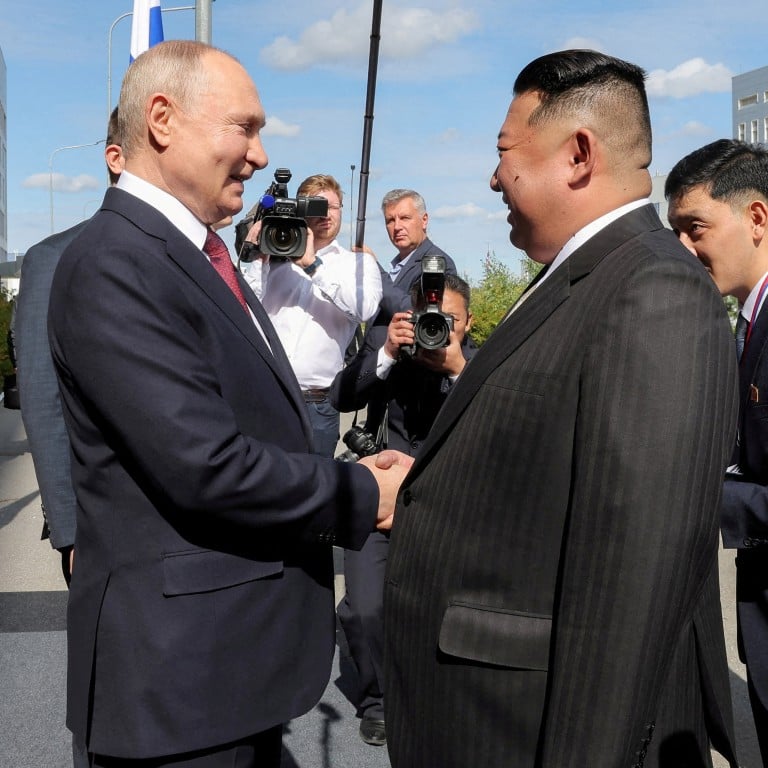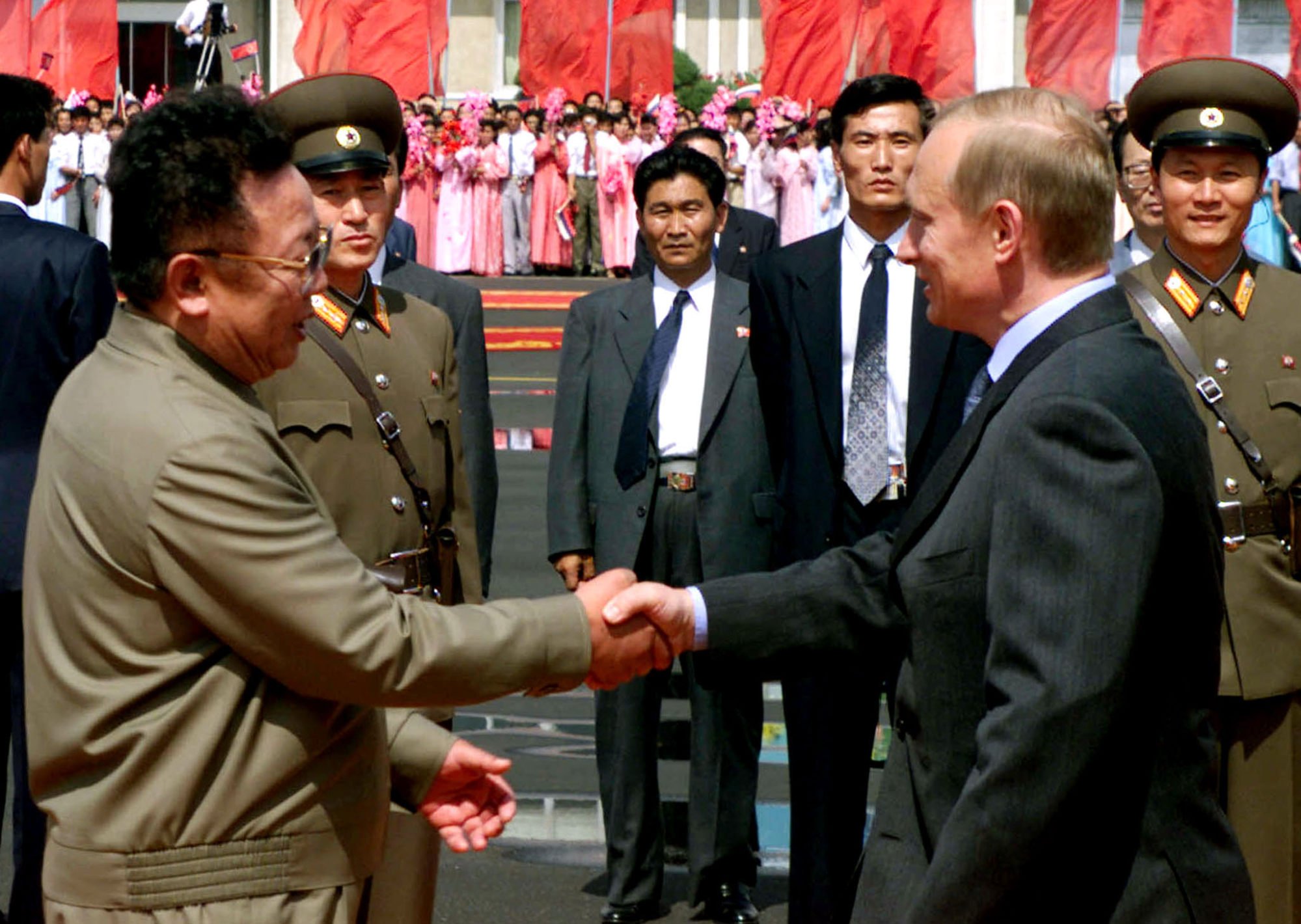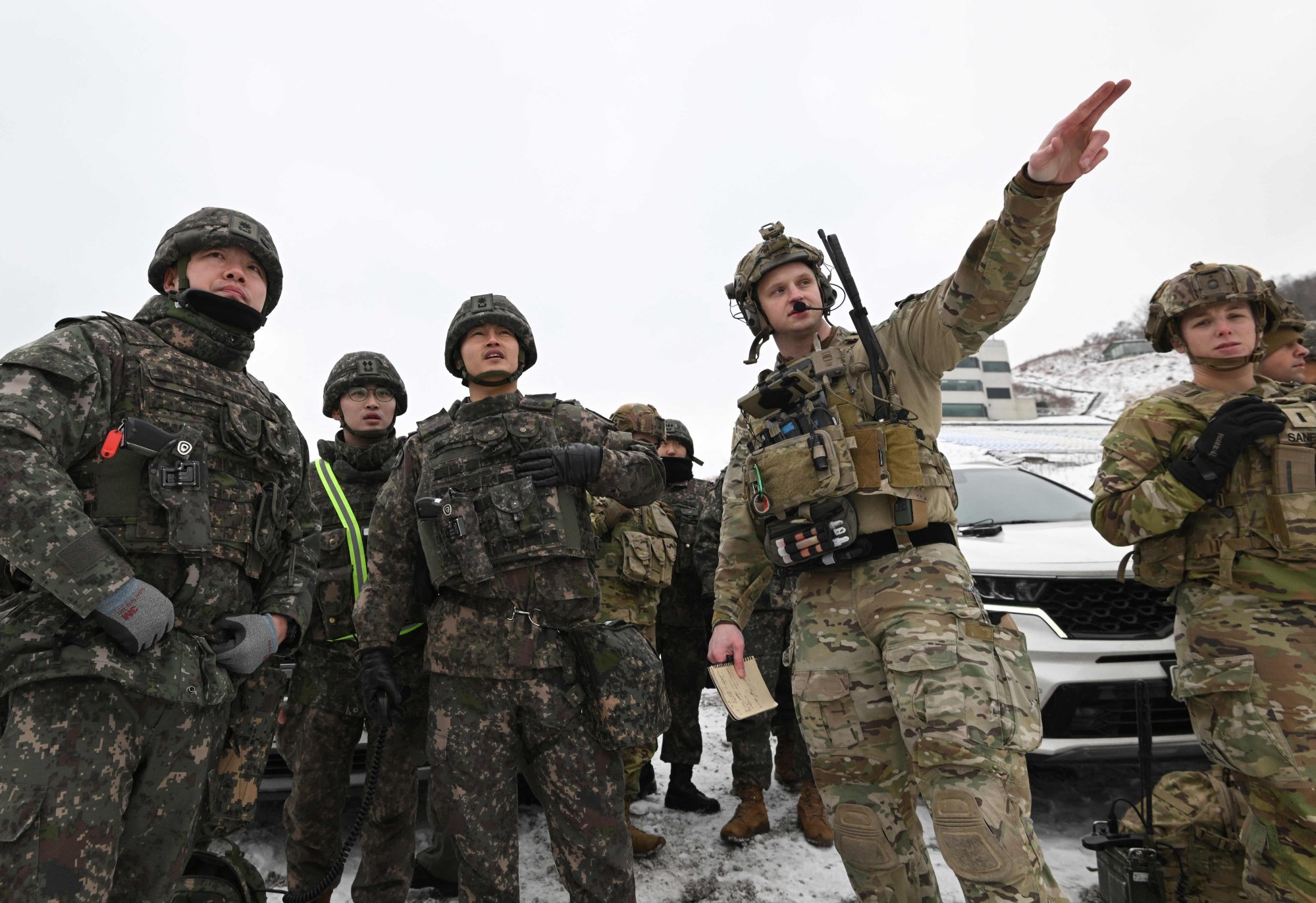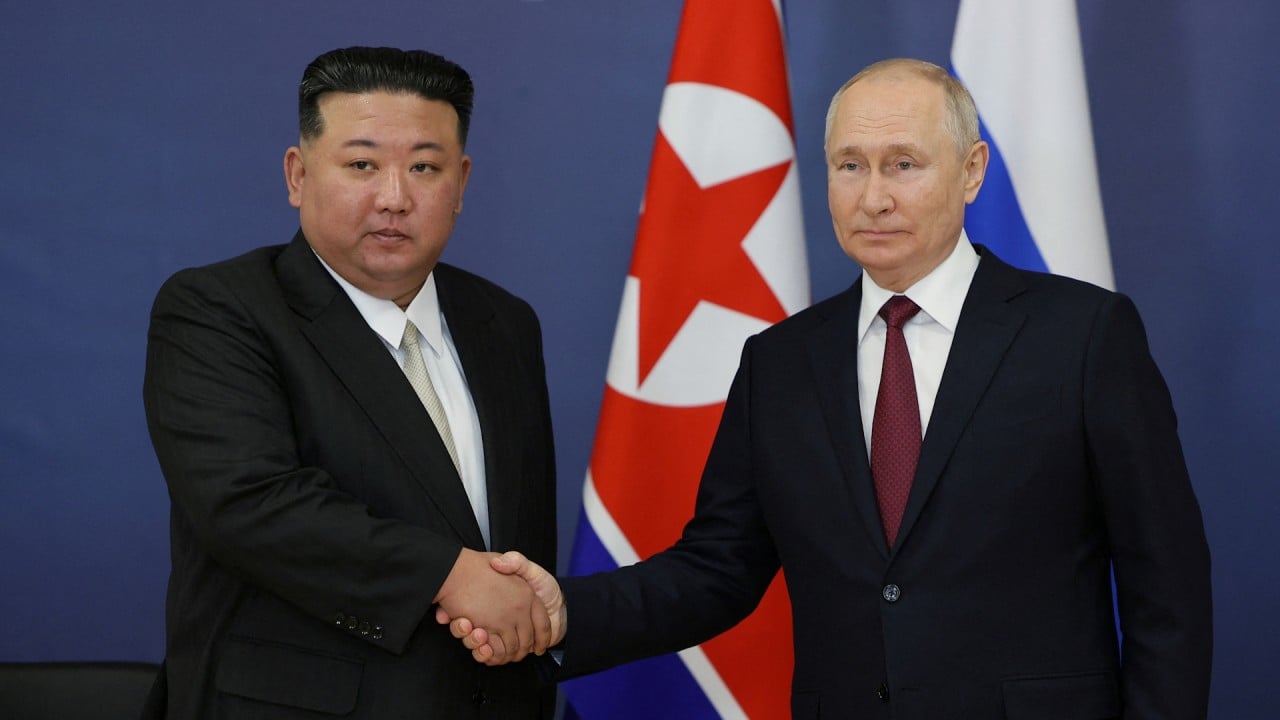
Putin in Pyongyang? Proposed trip to meet Kim Jong-un reveals Russia’s growing reliance on North Korea
- The mooted meeting would mark the Russian president’s first visit to the North Korean capital in decades amid both countries’ international isolation
- Analysts say Moscow’s backing has emboldened Pyongyang to challenge Washington and Seoul – and could ‘redress’ the military balance on the peninsula
During a meeting with North Korean Foreign Minister Choe Son-hui in Moscow last week, Putin expressed his “willingness” to visit Pyongyang soon to meet supreme leader Kim, North Korean state news agency KCNA reported on Sunday.
If confirmed, the visit to Pyongyang would be Putin’s first since he travelled to the capital more than 23 years ago for talks with Kim’s late father, Kim Jong-il.
As North Korea labels South its ‘top enemy’, is Kim Jong-un preparing for war?
“Since it seems that [Chinese President] Xi Jinping is not as willing as Putin to openly side with Kim, this is especially important for the North Korean leader”, Pardo said.
North Korea is expected to continue reaping multiple economic benefits from Moscow, including hard cash and energy and technology transfers, while Russia’s status as a permanent member of the United Nations Security Council with veto powers helps shield Pyongyang from international censure.
“Russia’s backing has made North Korea even more willing to openly threaten Washington and Seoul since it gives Pyongyang a strong diplomatic cover in the United Nations,” Pardo said.

As for Russia, Pardo said this is the first time in the history of its relations with North Korea in which it is the “supplicant” due to its weaker international clout.
“Over the decades, it has been Pyongyang going cap in hand to Moscow to request diplomatic, economic or military support. But this is the first time in which it is Russia in need of something that North Korea has,” Pardo said.
“It is a testament of Russia’s weakness and how far away it is from the only two superpowers today, the United States and China.”
Even without its closer Russia ties, North Korea was bound to ramp up its threats against the South Korean-American alliance ahead of the US elections in November, Pardo said.
Missile test a sign North Korea ‘more willing’ to challenge South, US
Pyongyang adopts such a belligerent approach when it “does not see much hope in relations with [South Korean President] Yoon Suk-yeol and [US President] Joe Biden”, he added.
Kim last week said unification with South Korea is no longer possible and that the North Korean constitution should be changed to designate the South as the “principal enemy”.
Ryo Hinata-Yamaguchi, an international-relations professor at the University of Tokyo, said that while the transfer of technology from Russia is under way, the boost in North Korea’s military capabilities is likely to happen over the long term due to “development and operationalisation”.
While North Korea seems to be emboldened by Russia’s backing, he said, the depth of their relationship is unclear as it has always been based on “convenience and opportunism”.“The level of trust has never been high,” he added.
Leif-Eric Easley, a professor of international studies at Ewha Womans University in Seoul, said that North Korea’s “war rhetoric and scenarios” are its way of justifying the country’s expensive pursuit of nuclear missiles and failure to win sanctions relief.
“North Korea is now exploiting ‘Cold War 2.0’ geopolitics to become more interdependent with, rather than dependent on, Russia and China. Through illicit trade in violation of UN sanctions, Pyongyang seeks to revitalise its economy and act as a more significant military power,” Easley said.
Artyom Lukin, an associate professor at the Far Eastern Federal University in Vladivostok, said the Putin-Kim meeting is likely to happen after the March 2024 presidential election in Russia. Putin said in December he is running again for the presidency, in a move that is likely to keep him in power until at least 2030.
“Putin’s summit with Kim in Pyongyang will mark Russia’s relationship with [North Korea] as that of a de facto alliance,” Lukin said, noting that Putin visited North Korea soon after he first became president in 2000.
He said one reason that Pyongyang is seeking strategic ties with Moscow is its increasing vulnerability because the South’s military capabilities have surged way ahead of the North.
“Even North Korea’s nuclear weapons can’t provide Pyongyang with reliable security guarantees because the South is capable of going nuclear almost overnight,” Lukin said.

According to the Global Firepower 2024 military strength ranking released earlier this month, South Korea ranked fifth in the world in terms of military strength, way ahead of 36th-placed North Korea. The annual military power index is based on more than 60 factors, ranging from military might to financial standing.
“Somewhat counter-intuitively”, a closer military collaboration between Russia and North Korea would bolster security and stability on the Korean peninsula by “redressing the military balance” that has been shifting in favour of the US-South Korea alliance.
“Weakness provokes. This equally applies to Pyongyang’s vulnerability vis-à-vis the increasingly powerful South,” Lukin said.
“If the North, with some Russian help, strengthens militarily, it may enhance mutual deterrence on the peninsula.”


